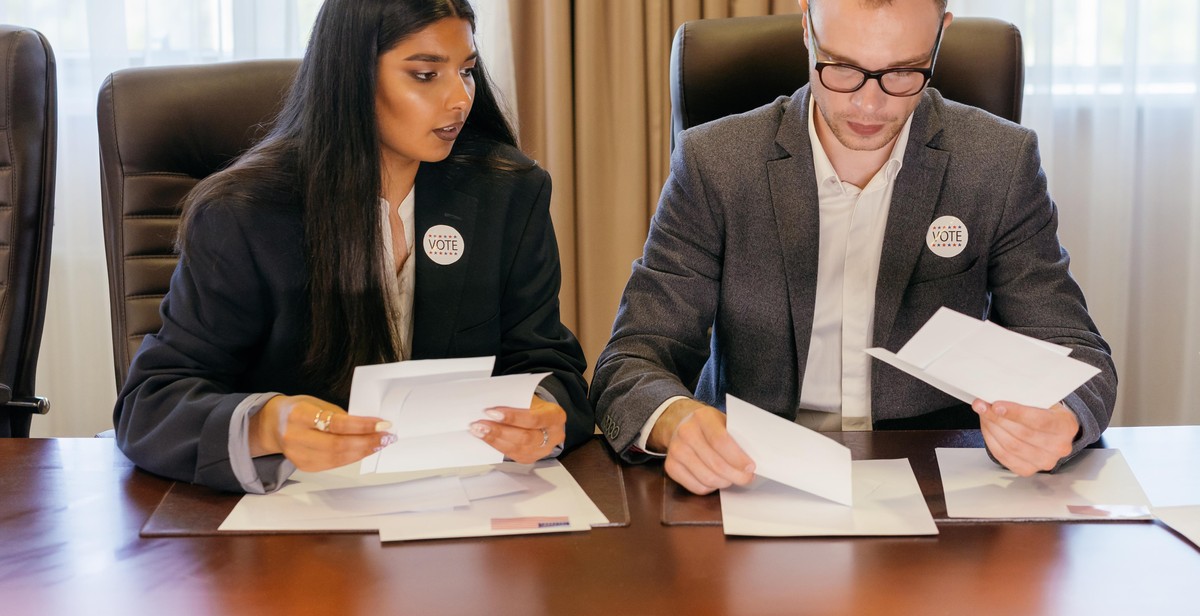How to Organize a Political Awareness Event in Your Community
Political awareness events are a vital component of any democratic society. They provide a platform for citizens to engage in discussions about important issues affecting their community, state, and country. These events are an opportunity for people to learn about the political process, become informed about candidates and their positions, and voice their concerns to elected officials.
Why Political Awareness Events Matter
Political awareness events matter because they empower citizens to participate in the democratic process. They help to create an informed electorate, which is essential for a healthy democracy. By attending these events, citizens can learn about the issues that affect them and their community. They can also meet with elected officials and candidates and ask questions about their positions and policies.
The Benefits of Organizing a Political Awareness Event
Organizing a political awareness event can have numerous benefits for your community. It can help to raise awareness about important issues, mobilize voters, and promote civic engagement. These events can also bring together people from different backgrounds and political affiliations to discuss common concerns and find solutions to problems.
- Raises awareness about important issues
- Mobilizes voters
- Promotes civic engagement
- Fosters discussion and problem-solving
By organizing a political awareness event, you can make a difference in your community and help to ensure that all voices are heard. In the following sections, we will provide tips and guidance on how to plan and execute a successful political awareness event.

Step 1: Define your event’s purpose
Before planning a political awareness event in your community, it’s important to define the purpose of the event. This will help you stay focused and ensure that your efforts are aligned with your goals.
What issues do you want to address?
Identify the issues that you want to address through your event. It could be anything from healthcare, education, environment, social justice, or any other topic that you feel passionate about. Make sure that the issues you choose are relevant to your community and resonate with your target audience.
Who is your target audience?
Knowing your target audience is crucial in organizing any event. Determine who you want to reach with your message and tailor your event accordingly. Are you targeting young voters, seniors, or a specific demographic group? Knowing your audience will help you choose the right speakers, venues, and promotional strategies.
What do you want to achieve with the event?
Set clear goals for your event. Do you want to educate your community about a specific issue, inspire action, or raise funds for a cause? Having a clear objective will help you measure the success of your event and ensure that you’re on the right track.
Once you have a clear understanding of your event’s purpose, you can start planning the logistics, such as the venue, speakers, and promotional materials. Keep in mind that the purpose of your event should be at the forefront of all your planning decisions.

Step 2: Plan Your Event
Now that you have defined the purpose of your political awareness event, it’s time to plan the logistics. Here are some essential steps to help you plan a successful event:
Choose a Date, Time, and Location
Selecting a date, time, and location that works for your target audience is crucial. Consider the availability of your guests and speakers when picking a date and time. The location should be easily accessible, with adequate parking and public transportation options.
Invite Speakers and Guests
Inviting knowledgeable and influential speakers is essential to the success of your event. Reach out to political leaders, activists, and subject matter experts who can contribute to your event. Invite your target audience, including community members, political enthusiasts, and media representatives.
Create an Agenda and Schedule
Develop a detailed agenda and schedule that outlines the event’s timeline and activities. Plan for breaks, networking opportunities, and Q&A sessions. Ensure that your speakers have sufficient time to present their ideas and engage with the audience.
Consider Logistics, such as Seating Arrangements and Audio/Visual Equipment
Consider the logistics of your event, such as seating arrangements, audio/visual equipment, and catering. Ensure that the venue has adequate seating, and the audio/visual equipment is functional. Arrange for catering services that align with your budget and dietary restrictions.
By following these steps, you can plan a successful political awareness event that engages your audience and achieves your goals.

Step 3: Promote your event
Now that you have planned the event and set the date, it is time to promote it. A well-executed marketing plan is essential to ensure that your event is successful and well-attended. Here are some strategies to consider:
Create a marketing plan
Start by creating a comprehensive marketing plan that outlines your event’s goals, target audience, messaging, and promotional tactics. Determine the best channels to promote your event, such as social media, email marketing, and local media outlets. Set a budget for your marketing efforts and allocate resources accordingly.
Use social media to spread the word
Social media is a powerful tool to promote your event and reach a wider audience. Create a Facebook event page and share it with your network. Use relevant hashtags on Twitter and Instagram to increase visibility. Consider running paid social media ads to target specific demographics and interests.
Reach out to local media outlets
Local media outlets, such as newspapers, radio stations, and TV channels, can help you reach a broader audience. Write a press release highlighting the key details of your event and send it to local journalists and editors. Be sure to follow up with a phone call or email to increase your chances of getting coverage.
Engage with potential attendees through email and personal outreach
Email marketing is an effective way to keep potential attendees informed and engaged. Send regular updates about your event, including speaker announcements and schedule changes. Consider sending personalized invitations to key individuals or groups in your community. Engage with potential attendees through personal outreach, such as phone calls or door-to-door canvassing.
By following these strategies, you can effectively promote your political awareness event and ensure its success.
Step 4: Host your event
Hosting a political awareness event is a great way to bring together like-minded individuals and create a platform for discussion. Here are some tips on how to host a successful event:
Set up your venue
Choose a venue that is easily accessible and can accommodate your expected number of guests. Make sure the venue has all the necessary amenities, such as seating, lighting, and audio equipment. It’s also important to have a backup plan in case of bad weather or any unexpected issues.
Introduce and thank your speakers and guests
Start your event by introducing your speakers and thanking your guests for attending. This will set the tone for the event and create a welcoming atmosphere. Make sure to also thank any sponsors or volunteers who helped make the event possible.
Encourage audience engagement and participation
During the event, encourage audience participation and engagement. This can be done through Q&A sessions, group discussions, or interactive activities. This will not only keep your audience engaged, but also create a sense of community and encourage networking among attendees.
Provide resources and information for attendees to take home
Make sure to provide attendees with resources and information that they can take home with them. This can include handouts, brochures, or links to relevant websites. This will help attendees stay informed and continue the conversation beyond the event.
In conclusion, hosting a political awareness event can be a great way to create a platform for discussion and encourage community engagement. By following these tips, you can ensure that your event is a success.
Step 5: Follow up
After the political awareness event has ended, it is important to follow up with attendees, speakers, and guests to show your appreciation and gather feedback. Here are some steps to follow:
Send thank-you notes to speakers and guests
Take the time to send personalized thank-you notes to all of the speakers and guests who participated in the event. Express your gratitude for their time and expertise, and let them know how much their contributions were appreciated. This is also a great opportunity to start building relationships with these individuals for future events.
Collect feedback from attendees
Gather feedback from attendees to evaluate their experience and identify areas for improvement. You can do this by sending out a survey or feedback form through email or social media. Ask attendees about the quality of the speakers, the relevance of the topics, the venue, and any other aspects of the event that they liked or disliked. Use this feedback to make improvements for future events.
Evaluate the success of the event and identify areas for improvement
Take some time to evaluate the overall success of the event. Look at attendance numbers, social media engagement, and any media coverage that the event received. Identify areas where the event was successful and areas where there is room for improvement. Use this information to plan more effective events in the future.
Plan for future events
Based on the feedback and evaluation of the event, start planning for future events. Use the information gathered to make improvements and adjustments to the format, speakers, and topics. Set a date for the next event and start promoting it early to ensure maximum attendance.
Conclusion
Organizing a political awareness event in your community can be a challenging but rewarding experience. By following the steps outlined in this article, you can ensure that your event is successful and impactful.
Remember the Importance of Planning
From selecting a venue to inviting speakers, planning is key to a successful political awareness event. Take the time to carefully consider each aspect of your event and develop a detailed plan to ensure everything runs smoothly.
Make Your Event Inclusive
It’s important to create an inclusive environment for your event, one where everyone feels welcome and comfortable. Be sure to promote your event through a variety of channels to reach a diverse audience.
Engage Your Community
Your political awareness event is an opportunity to engage with your community and encourage them to get involved in the political process. Encourage attendees to ask questions, share their thoughts, and connect with each other.
Measure Your Success
After your event is over, take the time to evaluate its success. Did you achieve your goals? Were attendees engaged and informed? Use this feedback to improve future events and continue to make a positive impact in your community.
Remember, organizing a political awareness event is just one way to make a difference in your community. By staying informed and engaged in the political process, you can continue to advocate for change and help shape a better future for all.
